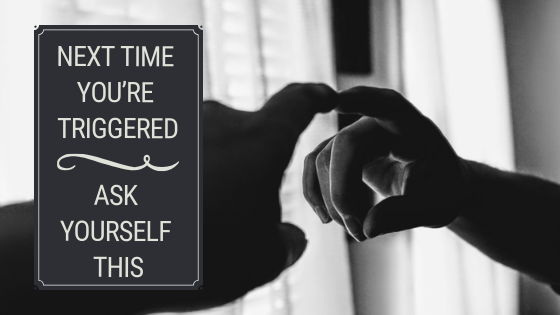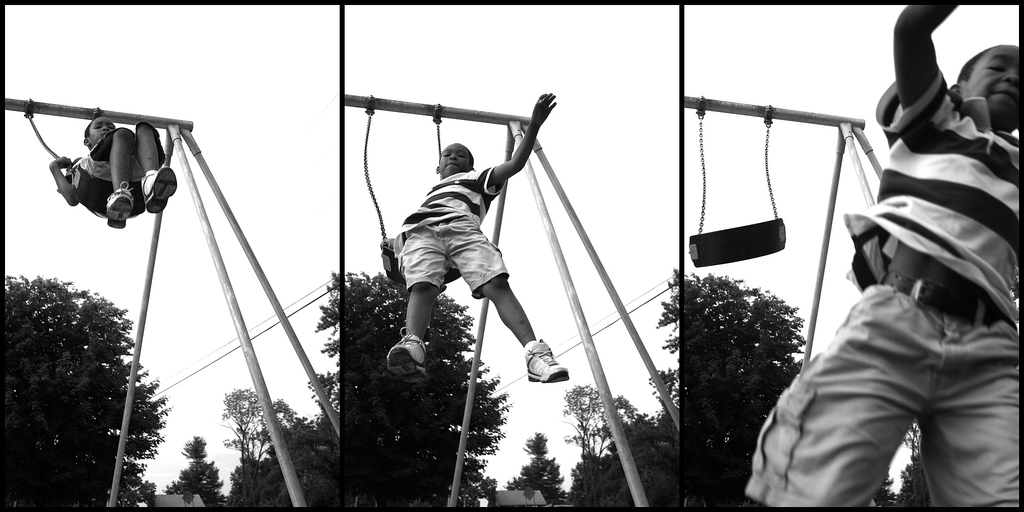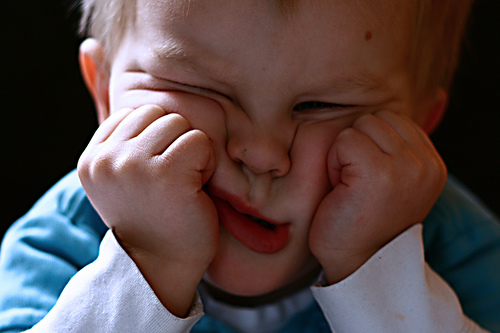Once a year I spend a weekend with a bunch of my mom friends on the coast. We talk, walk, eat, play games, sit in the hot tub, watch movies, stay up late, and sleep in.
Last mom’s weekend, we started talking about things (and people) that “trigger” us. But the conversation really deepened when I asked everyone a question about their own triggers.
I think of triggers as those “over the top” reactions that we have to something or someone…
But before I tell you about how to transform triggers, let’s talk a little bit about what triggers are and why it’s important to transform them…
What are triggers?
I think of triggers as having 2 parts:
1. An “out of proportion” reaction
2. A connection to something in my past (some unfinished business or unresolved hurt, usually from childhood)
It’s pretty easy to get triggered by your kids–more about this in a sec–however for the purpose of this discussion I’ll use a non-parenting example…
I got triggered recently when neighbor friend told me he didn’t like the wording in an email that I sent. I got so upset that I didn’t want to talk to him anymore!
Why are triggers difficult?
The difficulty with triggers is that when your emotions flare up you might act without thinking… you might say or do things that you later regret, or say something that just isn’t true. (With my neighbor, I almost fired an email back to him, without thinking first. )
Another difficulty is that people are more easily triggered by the people closest to them. For better or worse, your friends and family are the most likely to evoke your “big feelings”. (My neighbor friend affects me more than a stranger would.)
Lastly, when you’re triggered it’s easy to feel like a victim, like someone is doing something to you. When triggered you might think that the other person needs to change to solve your problem. When triggered it’s easy to turn the focus outward, rather than focusing on yourself. (With my neighbor, I wanted him to change. I blamed him for my upset, and I wanted him to say that he was sorry.)
So… How can we transform our triggers?
By asking one simple question:
“What unresolved hurt from my past am I reminded of by this current situation?”
When you focus on the part of your past that is being “triggered” by this current situation your emotions can shift.
(With my neighbor, his negative feedback hurt because when I was young I thought that I needed to be perfect in order to be loved. I felt sad about my neighbor's reaction to my email, because I was afraid it meant he didn’t like me anymore or value my friendship.)
After sharing with my friends, and hearing about their triggers and how they were connected to their past, I felt lighter and more at peace. (I see now that with my neighbor. His feedback was actually a sign that he DOES care about me… not the opposite!)
All of a sudden–in the context of my friends’ (and my) unresolved bits of the past–our triggers made sense…
When we understood WHY we reacted the way we did, to seemingly small things, our grip was loosened. The small things were no longer so prickly.
Keep in mind that triggers take time. My own trigger hasn’t gone away completely. It still hurts a little.
But it doesn’t have a strong hold on me.
After I see what is underneath the trigger, I can now respond with understanding and love to my family and friends, rather than respond with anger, sadness, or fear.
That’s freedom.
Now I’d love to hear about you. What did you discover when you looked underneath your trigger? What part of your past were you reminded of?
Share in the comments below. Your sharing could inspire someone else.
Thanks for reading and commenting. I see and respond to every comment!










When a person is constantly talking to me about their problems I try to listen and show empathy but I’m then severely triggered by it for days! I think it’s because the last man I was with was a narcissist and he always played the victim saying he had an autoimmune disease and yet he worked 24/7, I would then show him empathy and attention!! and be badly hurt by him
Valerie, that sounds so hard. I’m sending you healing and strength.
This is so timely for me. I have done some work in this area but feel I need refreshing at the moment as the yelling is creeping back in! A big trigger for me is feeling not listened too. Which happens constantly with the kids, and my husband too. I certainly don’t want this common pattern to keep going in my kids! oh, and my kids fighting. I haven’t dived into this one yet so it needs more reflection but I suppose noticing it is something! I sure do fire up and resort to over-powering rather than empowering… Thank you for the conversation and thought!
Thank you so much for sharing. I think you’re absolutely correct, and what a powerful/succinct question you’ve put out here for us to ask of ourselves. It allows us to get out of that victim mode and really identify from where we’re sourcing our own pain. Thanks for sharing.
When I am triggered by the feedback that comes from my dear ones and near ones, I pause, take a couple of deep and slow belly breaths that create a gap between the stimulus and my response to it. This simple technique helps me to respond to my family members and friends constructively. When I am calm and centered my reaction turns into response. Such responsive behavior also affects my HRV- Heart Rate Variability positively. HRV is a highly reliable health predictor.
My trigger is easy. I am British and we have perfected how to do put downs with a snobby accent and hint of sarcasm. The Brits could give world leading masterclasses in making others feel small and patronising with a tone of voice or inflection. If you analyse the words themselves what is being said is reasonable but the subtle tones can make the recipient feel small and inadequate. I hate it and it winds me up to an extreme. I want to glare back at the person and shout at them to stop belittling others but simply cannot as the words themselves are fine. Think you can tell it winds me up…